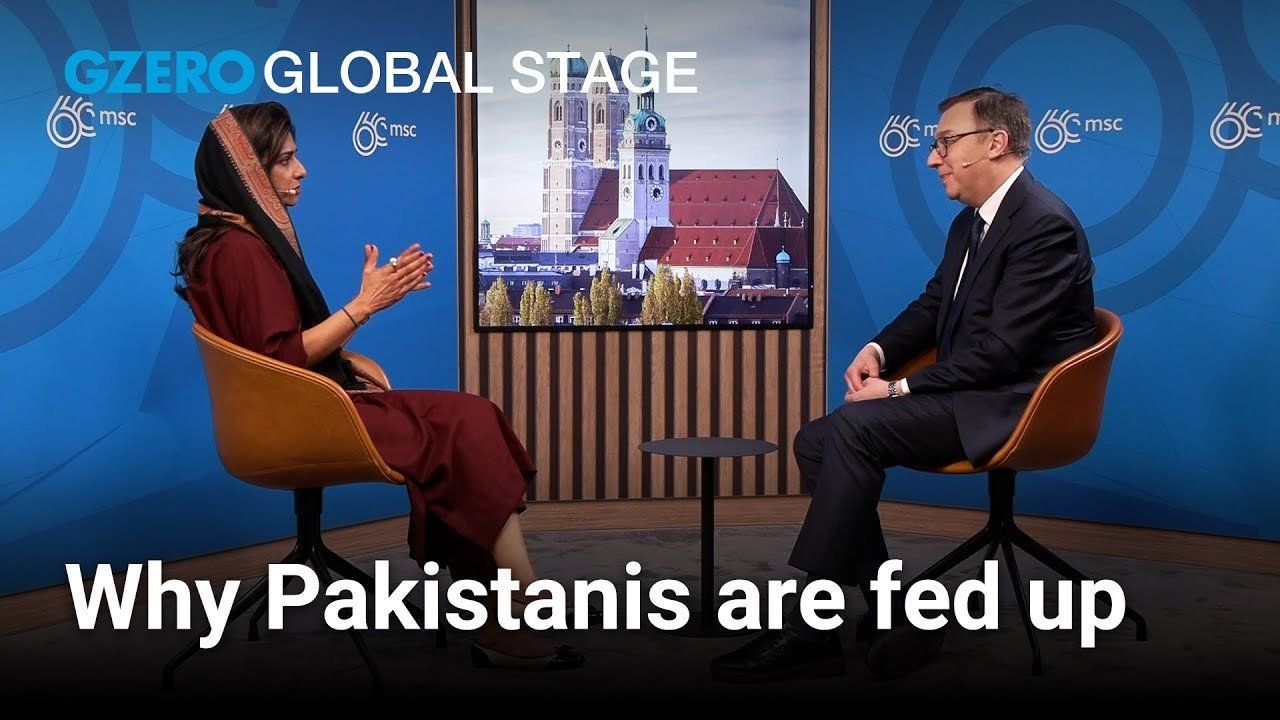Global Stage Interviews
Imran Khan: “The Poster Boy for Populism"

Imran Khan: “The Poster Boy for Populism" | Global Stage

Weeks after a chaotic general election, Pakistan’s political parties still struggle to form a coalition to move the country forward. GZERO’s Tony Maciulis sat down with Pakistan’s former Foreign Minister Hina Khar at the Munich Security Conference for her take on how the nation’s imprisoned ex-Prime Minister Imran Khan maintains a hold over supporters and remains a powerful political force.
Independent candidates mostly aligned with Khan’s political party, Pakistan Tehreek-e-Insaf (PTI), won the most votes on February 8, though they fell short of a majority, setting off a power struggle between Khan and his political rival, former Prime Minister Nawaz Sharif.
Comparing Khan to former US President Donald Trump and India’s leader Narendra Modi, Khar said, “He really represents what populist leaders are all about. He’s able to get everybody to rally around what all is wrong and the great injustices. However, when he comes to power, he doesn’t have any to plan to sort it out.”
Khar explained that Khan’s popularity flows from his ability to tap into the frustrations of his base, who are deeply concerned about rising costs of living, including food and energy prices.
While she hopes the political parties will be able to come to a resolution that respects the voters' mandate, Khar says “the jury is out” about whether Khan will ultimately bow out of the process.
Khar also addressed the ongoing tensions between Pakistan and neighboring India. In a past interview with GZERO, she had described India as a “rogue nation,” a claim she stood by once again in Munich. Modi’s popularity, she said, “is based on anti-Muslim, anti-Islam” sentiments that resonate with Hindu nationalist supporters.
Prime Minister Narendra Modi, with President of the European Council António Luís Santos da Costa, and President of the European Commission Ursula von der Leyen, at Hyderabad House, in New Delhi, India, on Jan. 27, 2026.
On Tuesday, the world’s largest economic body and the world’s most populous country cinched a deal that will slash or reduce tariffs on the vast majority of the products they trade.
Canadian Prime Minister Mark Carney has repeatedly tussled with US President Donald Trump, whereas Mexican President Claudia Sheinbaum has tried to placate him. The discrepancy raises questions about the best way to approach the US leader.
10,000: The number of Hamas officers that the militant group reportedly wants to incorporate into the US-backed Palestinian administration for Gaza, in the form of a police force.
Walmart is investing $350 billion in US manufacturing. Over two-thirds of the products Walmart buys are made, grown, or assembled in America, like healthy dried fruit from The Ugly Co. The sustainable fruit is sourced directly from fourth-generation farmers in Farmersville, California, and delivered to your neighborhood Walmart shelves. Discover how Walmart's investment is supporting communities and fueling jobs across the nation.